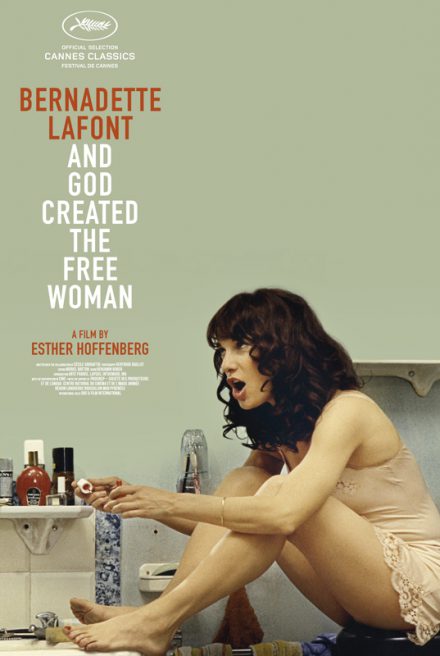
Bernadette Lafont and God Created the Free Woman (original title: Bernadette Lafont et Dieu créa la femme libre)
(France, 2016)
directed by Esther Hoffenberg
I did not know who Bernadette Lafont was before watching this documentary. The main reasons we chose to attend this particular festival screening were because it fit with our schedule and there were still tickets available! However, within minutes I was very pleased with our serendipitous choice--it was wonderful to be introduced to this bold, intelligent, successful French actor and to learn about her role in France's feminist movement. As a bonus, two of Lafont's granddaughters were in attendance and spoke briefly and movingly about their late grandmother.
Lafont started out in French New Wave films with rising directors Francois Truffaut and Claude Chabrol--her 1957 debut was in Truffaut's first professional film, a short called "Les Mistons" ("The Mischief Makers"). Lafont, 18 at the time of filming, appeared with her then-husband Gerard Blain. Not long after, the two split up, partly because (as Lafont explained it), Blain could not cope with her rising career and desire for a life outside the home and in addition to her role as wife and mother.
Not only does the film take us on a tour of Lafont's film career; it also delves into her rich and complex personal life. In interviews with her granddaughters and her close friend, actor Bulle Ogier, we learn about Lafont's joys as well as her tragedies, such as the accidental death of her daughter (actor Pauline Lafont) at age 25.
Lafont was a real force to be reckoned with, both as an actor and a feminist. She chose films that embodied her views on women's rights and used her fame to create a space for women to maintain a conversation about equality and feminism. Up to her death in 2013, she was still acting in major roles to much critical and popular acclaim. In her final film, Paulette, she played the starring role as a cranky pensioner who becomes a drug dealer to make ends meet. Paulette shrewdly uses the social invisibility of elderly women to her advantage: she can fly under everyone's radar because society assumes she has no agency.
I would highly recommend this documentary to anyone interested in French film and/or the history of feminism in French culture.
No comments:
Post a Comment